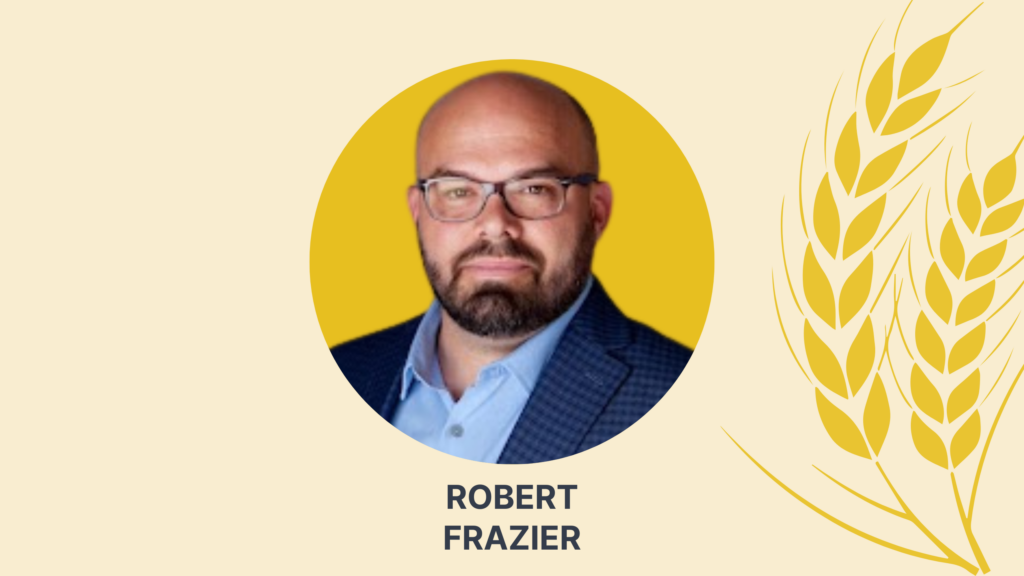Listen
Watch
Show Notes
Robert Frazier might not be the first person you think of when you consider the needs of rural churches. Robert planted Redemption Hill, a network of microchurches in Boise, Idaho, and founded The City Network. However, Boise is the only major city in the region, and their ministry has expanded to the suburbs, exurbs, and rural areas in the two-hour vicinity.
In this episode, Robert discusses the difference between being a “small” church and a “micro” church. He provides new insight into how churches of all sizes can approach discipleship and the unique strengths small and rural churches have. He also discusses how the ministry of rural churches makes a significant impact on cities.
Robert Frazier is a founder of Redemption Hill, a network of micro churches in Boise, Idaho, a co-founder of The City Network, a church planting collaboration in Southern Idaho and leads the design firm SolidCreative.Media LLC as Lead Catalyst.
You’ll also hear a bonus section where hosts Chris and Kathleen Blackey discuss their approach to building relationships.
Help us spread the word about the Fresh Expressions podcast by subscribing and leaving us reviews on Apple Podcasts, Spotify, YouTube or wherever you enjoy your podcasts.

Related Resources:
A special thank you to Alabaster Grace Ministries for their music.
Join our Facebook group: Rural Renewal Podcast Community
Email us: podcasts@freshexpressions.com
Interview Summary
“Boise is a city, but it’s definitely not a city in the way we think about it,” reflects Robert Frazier, capturing the essence of Boise, Idaho—a city surrounded by rural, yet buzzing with its unique dynamism. In our enlightening conversation with Robert, we delved into the innovative concept of microchurches and the profound impact of faith in both urban and rural settings.
Robert Frazier, a Boise native, has a compelling story. After planting Redemption Hill, a network of microchurches, and running a marketing company, Robert’s life is a testament to a mission-driven existence centered around community and faith.
Understanding Microchurches
The core of our discussion was the innovative approach to church gatherings known as “microchurches.” Robert explains, “Microchurches are the simplest form of ecclesial minimums of what it means to be God’s people.” These gatherings emphasize a deep connection with God, community formation through discipleship, and an active mission to bring the kingdom of God into their surroundings.
Micro means that the gathering of followers of Jesus has some element of our minimum ecclesiology: up, in, and out.
Microchurches in a Rural Context
Despite Boise’s urban environment, its proximity to rural areas provides unique insights into implementing microchurches in less populated settings. Robert shared stories of friends who have successfully translated the microchurch model to rural contexts, highlighting the adaptability and essential human connections that drive these initiatives.
We’re surrounded by rural areas, so we get to participate and work with a bunch of people who are planting in smaller towns within a few hours of us
Detailed Exploration of Rural Microchurch Implementation
One compelling narrative involved a friend who transitioned from an executive pastor role at a large urban church to planting microchurches in a nearby rural community. This shift was driven by a desire to connect more authentically with the community and implement faith practices that were more engaging and personal than those offered in larger, more anonymous settings.
Even in small towns, there are people who have been hurt by church, who have experienced the worst of religion and are looking for spaces to connect with God that don’t look and taste and feel like where they’ve been hurt.
Renewal through Microchurches
The potential for renewal, particularly in traditional church settings, was another significant topic. Robert passionately discussed how established churches could transform and embrace new, vibrant forms of worship and community engagement through microchurch frameworks.
Renewal is about helping existing congregations to transition, to die to some old traditions but also to embrace new vibrant forms of community and worship.
Robert’s work with microchurches in Boise and beyond is not just about religious gatherings; it’s about fostering a sense of belonging and purpose. “It’s about making the gospel accessible and relatable, breaking down the barriers that traditional church settings might pose,” he notes.
As we look ahead, Robert’s vision for renewal and community-centered faith offers both challenges and hope for the future. His dedication to nurturing faith communities speaks to the powerful role of personalized, small-scale interactions in spiritual and community growth.
Reflection Questions
- What elements of the microchurch model could be adapted to your community?
- How does the concept of microchurches change your perception of traditional church settings?
- What role can microchurches play in revitalizing rural areas?
- How can established churches respond to the changing needs of their congregations?
- How might your community benefit from a more intimate, community-focused approach to faith?

